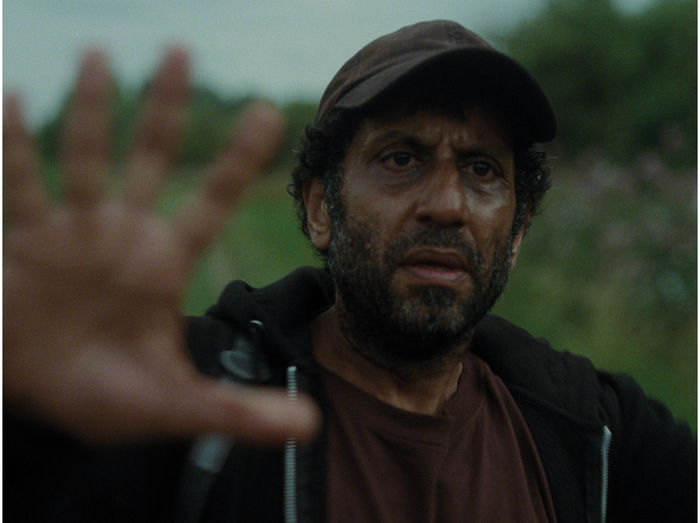Spaces of Exception and breaking the politics of representation
At the first screening of the Cambridge Palestinian Culture series, Anna Geary explores how Spaces of Exception evolves with the present, as told by co-director Malek Rasamny

On the evening of January 22nd, the documentary film Spaces of Exception (dir. Matt Peterson and Malek Rasamny, 2019) was screened in Lady Mitchell Hall as the first event in the Cambridge Palestinian Culture Series hosted by the Faculty of Modern and Medieval Languages and Linguistics. The film, which is part of a wider multimedia project entitled The Native and the Refugee, parallels and contrasts the lives and spaces of communities living in Native American reservations and Palestinian refugee camps with footage shot between 2014 and 2017. The screening was followed by a Q&A with one of the film’s co-directors Malek Rasamny and moderated by Dr Kareem Estefan, during which the director delved into the details of the documentary’s filmmaking process.
“It was more a case of film curating than filmmaking,” remarked Rasamny. The documentary zooms in on each space in an episodic series of individual short films, alternating between the reservations and the refugee camps, from South Dakota to the West Bank, from New York State and Arizona to Lebanon. For Rasamny, “spaces are the essence.” Whether caged in the suffocating confinement of a camp that must expand vertically to contain its growing population or fenced into land that is invaded and corrupted by outside forces, the inhabitants of these exceptional spaces are in a constant state of resistance. As a speaker in the Bourj el Barajneh refugee camp in Lebanon declares, “We are a people of resistance, looking forward to the future.”
“The inhabitants of these exceptional spaces are in a constant state of resistance”
Having grown up between the US and Lebanon, Rasamny expressed his desire to subvert the common stereotype that these “extraneous” communities are “dangerous” and to avoid the perpetuation of “poverty porn” that so often prevails in Western media and documentary filmmaking. Instead, these filmmakers took an “anti-archival” approach. “It’s not historical because that nullifies the present”, clarified Rasamny – this documentary took its form at the very moment of filming. During a section dedicated to the Dheisheh camp in the West Bank, we see the community mourning a 19-year-old student, Jehad al-Jafari, who was shot during a military raid on the camp in 2015. Rasamny was keen to stress that this tragedy had coincided with the filmmakers’ arrival in Palestine – the camera bore witness to the present and thus revealed not a one-off, documented and swiftly historicised incident but rather one example of what is an incessantly frequent occurrence.
As Dr Kareem Estefan observed, the film exclusively features the voices of the residents in the reservations and camps. Indeed, rather than interviewing the inhabitants and asking them to formally present themselves and their lives, reducing them to “another individual story,” the filmmakers introduced “discussions” to allow the speakers’ opinions to flow freely as a means of “breaking the politics of representation.” Just as the film speaks for itself, so too do its subjects. Impressions of their daily struggles emerge through these open dialogues, encompassing problems of alcoholism in the Pine Ridge Indian Reservation, the deprivation of space and mobility in the Balata and Dheisheh camps, the invasion of infrastructure in Black Mesa, Navajo Nation and interrogation and surveillance in the Bourj el-Barajneh and Bourj Al Shamali camps.
“Spaces of Exception is essentially and continually preoccupied with the present”
And yet, as Rasamny stated, the spaces are shown to be “products of pure force and places of potential.” It is not solely confinement that makes these spaces exceptional but rather, in Rasamny’s words, their “imagination.” One resident of the Akwesasne Mohawk Reservation, which resides on New York State’s border with Canada, asserts: “We’re sovereign. We’re a people not a nation. A nation is just a corporation.” Members of the tribes may be poor by capitalist standards but their independence from the capitalist economic system means that their livestock and land are what sustain them. In the case of the Palestinian refugee camps, Rasamny maintains that the very existence of refugees is a resistance to the notion of the nation-state. As one refugee in Bourj al Shamali declares, “My presence itself is a war.”
Perhaps the most important aspect of the film is, in fact, beyond the screen. Rasamny noted that “the film is a document that can travel around, where the people cannot,” and explained that the film was intended to be a “support to a discussion”, shown in various different contexts such as arts theatres and universities as well as in reservations and camps. “You can read different historical moments or chart them through the reception of the film,” observed Rasamny. “It is updated through its own reception.”
Screening Spaces of Exception in light of the renewed conflict in Gaza and against the backdrop of frequent and ongoing demonstrations throughout Cambridge’s city centre reflects the community’s engagement with the very issues foregrounded by Rasamny and Peterson’s work. Though released five years ago, Spaces of Exception is essentially and continually preoccupied with the present.
 News / SU reluctantly registers controversial women’s soc18 December 2025
News / SU reluctantly registers controversial women’s soc18 December 2025 News / CUP announces funding scheme for under-represented academics19 December 2025
News / CUP announces funding scheme for under-represented academics19 December 2025 Features / Should I stay or should I go? Cambridge students and alumni reflect on how their memories stay with them15 December 2025
Features / Should I stay or should I go? Cambridge students and alumni reflect on how their memories stay with them15 December 2025 News / Cambridge welcomes UK rejoining the Erasmus scheme20 December 2025
News / Cambridge welcomes UK rejoining the Erasmus scheme20 December 2025 Science / ‘Women just get it more’: autoimmunity and the gender bias in research19 December 2025
Science / ‘Women just get it more’: autoimmunity and the gender bias in research19 December 2025










